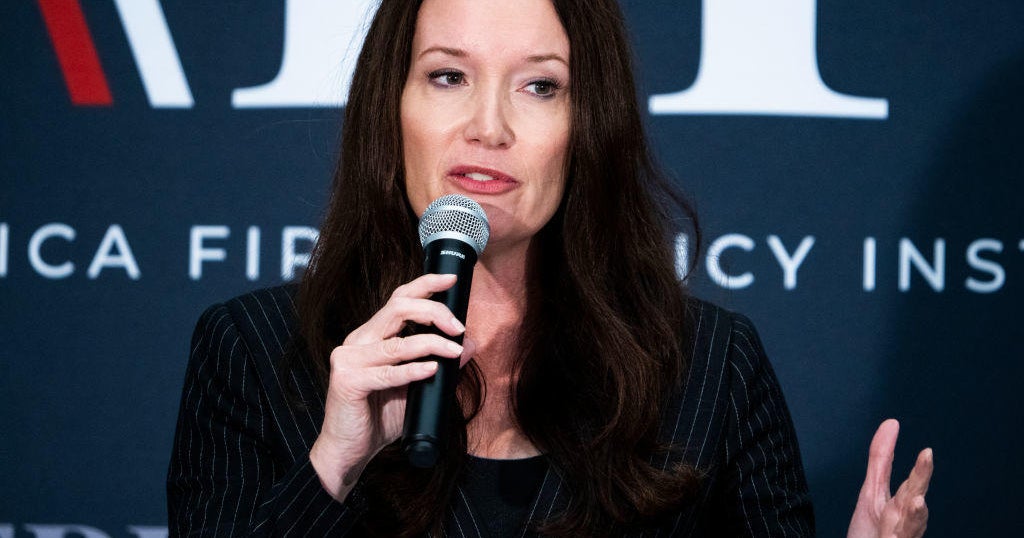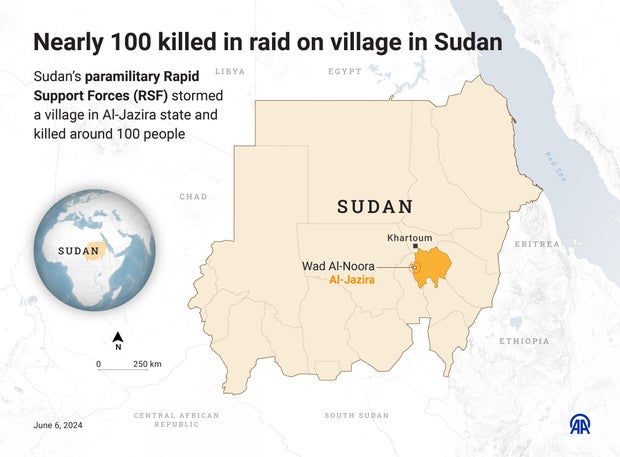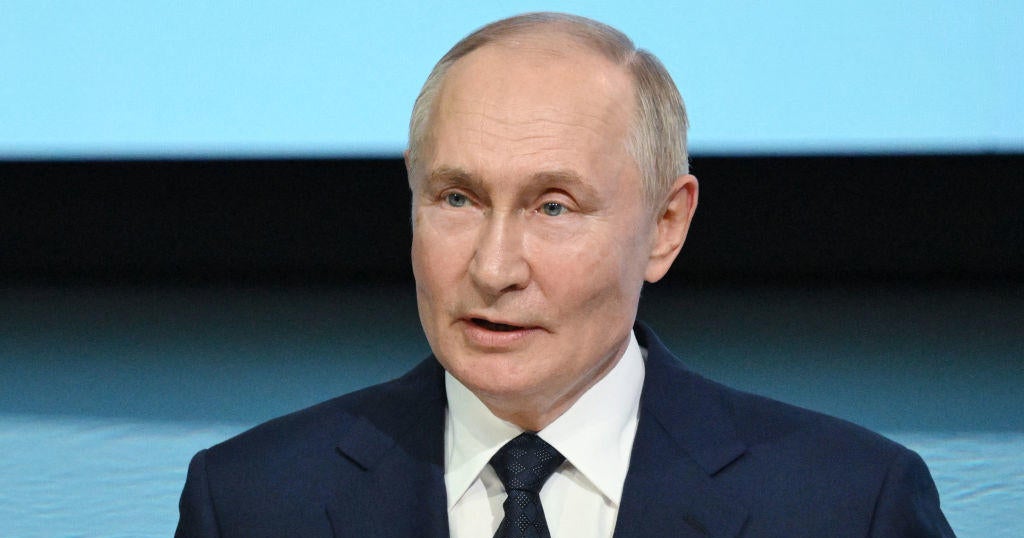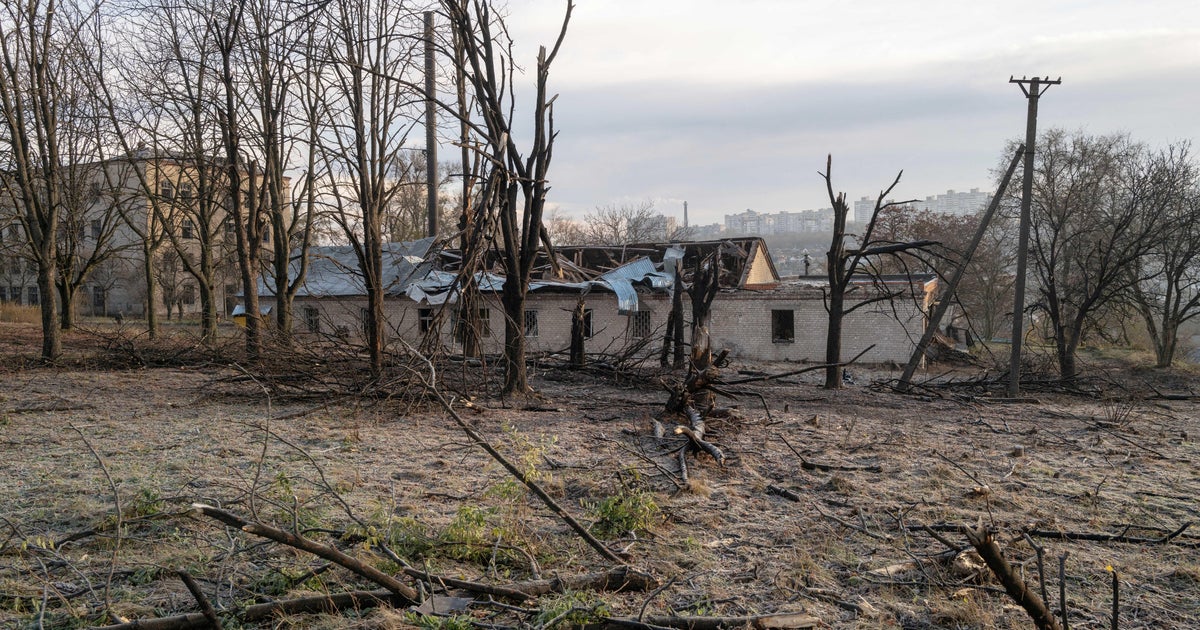CBS News
35 children among those killed in latest Sudan civil war carnage, U.N. says

Johannesburg — The United Nations confirmed late Thursday that 35 children were among those killed in one of the deadliest attacks to date in the civil war that has torn Sudan apart for more than a year. Eyewitnesses said the brutal attack left up to 200 people dead in the village of Wad Al-Noora, in Sudan’s central Gezira state.
Sudan’s army vowed a strong response against the rival Rapid Support Forces paramilitary group, which it accused of carrying out a “massacre of civilians.”
Abdel Fattah al-Burhan, Sudan’s army chief and president, said his troops would take action over the incident.
The RSF has denied carrying out a massacre, but has acknowledged conducting military operations near the town.
Elmurod Usubaliev/Anadolu/Getty
Local officials initially claimed that more than 100 people were shot Wednesday in Wad Al-Noora, with later reports saying the death toll could be as high as 200. Many more were believed to be wounded.
Videos on social media, which could not be independently verified, show what was said to be the aftermath of the attack, with rows of bodies lined up ready for burial.
Sudan’s military government, led by al-Burhan, called for international condemnation of the attack.
A man-made humanitarian crisis and claims of war crimes
More than a year into the war in Sudan, roughly half of the country’s population — some 25 million people — are in urgent need of humanitarian assistance. In their worst-case outlooks, humanitarian agencies say 4 million children may be facing acute malnutrition, and 2.5 million could die of hunger.
It’s a man-made humanitarian disaster that aid agencies say has been largely ignored by the world amid the ongoing wars in Gaza and Ukraine.
A recent report by Human Rights Watch claims an act of genocide may have been committed in the West Darfur city of El Geneina. The report lays out claims of alleged ethnic cleansing and crimes against humanity committed against the ethnic Massalit and non-Arab communities in the city by the paramilitary RSF forces and their Arab allies.
HRW has called for international sanctions against RSF leader Mohammed Hamdan Daglo, widely known as Hemedti.
One report details an attack on June 15, 2023, that HRW says involved RSF and allied forces opening fire on a convoy of civilians fleeing El Geneina, allegedly killing 12 children and five adults from two families, before throwing their bodies “into the river and their belongings in after them.”
There is a long and bloody history of fighting over resources in Sudan, and the surrounding region. Former Sudanese President Omar el Bashir, who was ousted by the army in 2019, regularly exploited those conflicts, fanning the flames of ethnic violence for political gain.
His government created Arab militias in the early 2000s to quell rebellions by non-Arab farming and pastoralist communities. Those Arab militias became known as the Janjaweed and, later, the RSF paramilitary group emerged from their ranks.
AFP/Getty
Sudan’s civil war has become a global proxy war
The civil war broke out last year, starting as a power struggle between al-Burhan and Hemedti, but it has morphed into a larger proxy war as regional and foreign actors compete for influence and resources.
Saudi Arabia and Egypt back al-Burhan’s government, and he has recently been working to forge closer ties with Iran and Russia.
Humanitarian groups and regional analysts say the United Arab Emirates and Russia have been providing arms and resources to the RSF. UAE officials have repeatedly denied those claims.
In the most significant recent development, it seems almost certain that a deal is about to be signed between Moscow and al-Burhan’s government to secure Russia a 25-year Red Sea port, in exchange for military hardware.
Russia has long sought access to the strategic Red Sea, with analysts saying they would expect considerable military hardware to be offered up in exchange for what’s understood to be a small port base where Russia could position four warships and about 300 Russian soldiers.
The two generals’ battle for control of their country’s resources has become a proxy war for major global powers vying for access to gold mines and Red Sea access. Sudan’s capital Khartoum, one of the African continent’s most populous cities, is now described as a battlefield, in a country whose people are on the brink of famine.
CBS News
Trump picks former White House aide Brooke Rollins to lead the USDA

President-elect Donald Trump said Saturday that he will nominate former White House aide Brooke Rollins to be his agriculture secretary, the last of his picks to lead executive agencies and another choice from within his established circle of advisers and allies.
The nomination must be confirmed by the Senate, which will be controlled by Republicans when Trump takes office Jan. 20, 2025. Rollins would succeed Tom Vilsack, President Biden’s agriculture secretary who oversees the sprawling agency that controls policies, regulations and aid programs related to farming, forestry, ranching, food quality and nutrition.
Rollins, who graduated from Texas A&M University with a degree in agricultural development, is a longtime Trump associate who served as his former domestic policy chief. She is president and CEO of the America First Policy Institute, a group helping to lay the groundwork for a second Trump administration.
Tom Williams/CQ-Roll Call, Inc via Getty Images
Rollins, 52, previously served as an aide to former Texas Gov. Rick Perry and ran a think tank, the Texas Public Policy Foundation.
Rollins’ pick completes Trump’s selection of the heads of executive branch departments, just two and a half weeks after the former president won the White House once again. Several other picks that are traditionally Cabinet-level remain, including U.S. Trade Representative and head of the Small Business Administration.
Trump didn’t offer many specifics about his agriculture policies during the campaign, but farmers could be affected if he carries out his pledge to impose widespread tariffs. During the first Trump administration, countries like China responded to Trump’s tariffs by imposing retaliatory tariffs on U.S. exports like the corn and soybeans routinely sold overseas. Trump countered by offering massive multibillion-dollar aid to farmers to help them weather the trade war.
President Abraham Lincoln founded the USDA in 1862, when about half of all Americans lived on farms. The USDA oversees multiple support programs for farmers; animal and plant health; and the safety of meat, poultry and eggs that anchor the nation’s food supply. Its federal nutrition programs provide food to low-income people, pregnant women and young children. And the agency sets standards for school meals.
Robert F. Kennedy Jr., Trump’s nominee to lead the Department of Health and Human Services, has vowed to strip ultraprocessed foods from school lunches and to stop allowing Supplemental Nutrition Assistance Program beneficiaries from using food stamps to buy soda, candy or other so-called junk foods. But it would be the USDA, not HHS, that would be responsible for enacting those changes.
In addition, HHS and USDA will work together to finalize the 2025-2030 edition of the Dietary Guidelines for Americans. They are due late next year, with guidance for healthy diets and standards for federal nutrition programs.
CBS News
North Dakota Badlands national monument proposed with tribes’ support

A coalition of conservation groups and Native American tribal citizens on Friday called on President Joe Biden to designate nearly 140,000 acres of rugged, scenic Badlands as North Dakota’s first national monument, a proposal several tribal nations say would preserve the area’s indigenous and cultural heritage.
The proposed Maah Daah Hey National Monument would encompass 11 noncontiguous, newly designated units totaling 139,729 acres in the Little Missouri National Grassland. The proposed units would hug the popular recreation trail of the same name and neighbor Theodore Roosevelt National Park, named for the 26th president who ranched and roamed in the Badlands as a young man in the 1880s.
“When you tell the story of landscape, you have to tell the story of people,” said Michael Barthelemy, an enrolled member of the Mandan, Hidatsa and Arikara Nation and director of Native American studies at Nueta Hidatsa Sahnish College. “You have to tell the story of the people that first inhabited those places and the symbiotic relationship between the people and the landscape, how the people worked to shape the land and how the land worked to shape the people.”
The U.S. Forest Service would manage the proposed monument. The National Park Service oversees many national monuments, which are similar to national parks and usually designated by the president to protect the landscape’s features.
Supporters have traveled twice to Washington to meet with White House, Interior Department, Forest Service and Department of Agriculture officials. But the effort faces an uphill battle with less than two months remaining in Biden’s term and potential headwinds in President-elect Trump’s incoming administration.
If unsuccessful, the group would turn to the Trump administration “because we believe this is a good idea regardless of who’s president,” Dakota Resource Council Executive Director Scott Skokos said.
Dozens if not hundreds of oil and natural gas wells dot the landscape where the proposed monument would span, according to the supporters’ map. But the proposed units have no oil and gas leases, private inholdings or surface occupancy, and no grazing leases would be removed, said North Dakota Wildlife Federation Executive Director John Bradley.
The proposal is supported by the MHA Nation, the Spirit Lake Tribe and the Standing Rock Sioux Tribe through council resolutions.
If created, the monument would help tribal citizens stay connected to their identity, said Democratic state Rep. Lisa Finley-DeVille, an MHA Nation enrolled member.
North Dakota Gov. Doug Burgum is Trump’s pick to lead the Interior Department, which oversees the National Park Service. In a written statement, Burgum said: “North Dakota is proof that we can protect our precious parks, cultural heritage and natural resources AND responsibly develop our vast energy resources.”
North Dakota Sen. John Hoeven’s office said Friday was the first they had heard of the proposal, “but any effort that would make it harder for ranchers to operate and that could restrict multiple use, including energy development, is going to raise concerns with Senator Hoeven.”
CBS News
New Mexico city reaches $20 million settlement in death of woman fatally shot by officer

A city in New Mexico has reached a $20 million settlement with the family of a woman who was shot and killed by a police officer now charged with second-degree murder.
Teresa Gomez, 45, was fatally shot in October 2023 shortly after a Las Cruces police officer on a bicycle approached her while she sat in a parked car with another person, authorities said. Body camera video shows the officer shot Gomez three times as she tried to drive away.
The officer, identified by the city as Felipe Hernandez, was charged in January and fired months later from the Las Cruces Police Department.
“This settlement should be understood as a statement of the City’s profound feeling of loss for the death of Gomez and of the City’s condolences to her family,” the city of Las Cruces said in a news release sent Friday.
Hernandez has pleaded not guilty to the murder charge. His trial is scheduled for June 2. The Associated Press sent an email Saturday seeking comment from Hernandez’s attorney.
A lawyer for the Gomez family said her relatives are grateful to the city “for recognizing the injustice of Teresa’s death,” the Las Cruces Sun-News reported.
“They trust that the city will redouble efforts to make sure no other family suffers the tragedy of losing a loved one to abusive police conduct,” Shannon Kennedy said in a statement to the newspaper.












